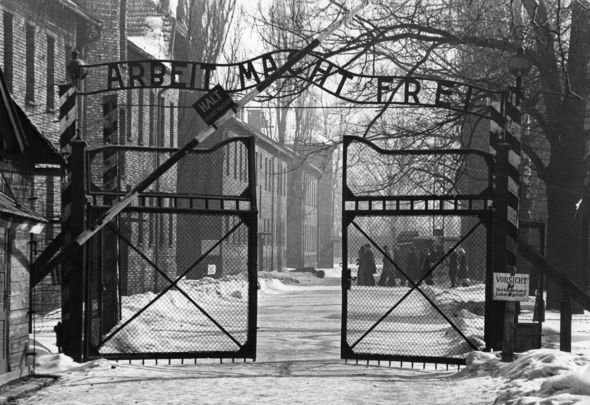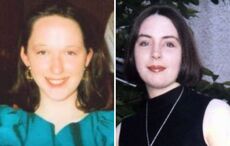61 percent of people surveyed in Northern Ireland believe something like the Holocaust could happen again today, a new study has found.
The findings of the United Kingdom Holocaust Knowledge and Awareness Survey were published today, November 10, coinciding with the anniversary of Kristallnacht in 1938 Germany.
A huge majority - 91 percent - of respondents in Northern Ireland believe it is important to continue to teach about the Holocaust, in part, so it doesn’t happen again.
74 percent of respondents in Northern Ireland believe that at least a few people in the UK think the Holocaust did not happen.
68 percent of Northern Ireland respondents believe there is antisemitism in the UK today; 27 percent believe there are a great deal of, or many, antisemitic people in the UK today.
With 59 percent, Northern Ireland has the highest percentage of respondents in the UK who have personally visited a museum or memorial, or know someone who has. 53 percent of respondents in Northern Ireland have themselves visited a former Nazi camp or know someone who has.
46 percent of Northern Ireland’s respondents said they did not know that six million Jews were killed in the Holocaust.
30 percent of Northern Ireland’s respondents have seen Holocaust denial or distortion on social media or elsewhere online.
24 percent of Northern Ireland’s respondents are unable to name a single concentration camp or ghetto.
With six percent, the percentage of Northern Ireland’s respondents who believe the Holocaust is a myth greatly exaggerated is the lowest rate amongst the four UK nations surveyed in the study.
The Conference on Jewish Material Claims Against Germany (Claims Conference), commissioned Schoen Cooperman Research to conduct the study of Holocaust Knowledge and Awareness in the United Kingdom. The study was conducted with adults aged 18 and over in England, Wales, Scotland, and Northern Ireland between September 29 and October 17, 2021.
3,780 interviews were conducted in total across the UK for the study. 2,000 initial interviews were conducted across the United Kingdom so that results could be examined UK-wide, with 1,680 conducted in England. Second, additional interviews were completed in the smaller constituent countries of Scotland, Wales, and Northern Ireland to achieve 700 interviews in each nation in order to compare findings between the constituent countries.
Announcing the study’s findings, Dublin native Gideon Taylor, President of the Claims Conference, said: “We are very concerned to see the profound gaps in knowledge of the Holocaust in this and in previous studies including about events connected to the U.K.
“Yet, it is very powerful to see the overwhelming majority of U.K. respondents say the Holocaust should be taught in schools.
“Eighty-eight percent believe that it is important to continue to teach the Holocaust, in part, so it does not happen again. This is where we need to focus our energy. Education will not only fill the gaps in Holocaust knowledge, but it will also make for better, more empathetic citizens.”
Overall, the study found that the majority (52 percent) of all respondents did not know that six million Jews were murdered and 22 percent thought that two million or fewer Jews were killed during the Holocaust.
Further, a majority of UK respondents (57 percent) believe that fewer people seem to care about the Holocaust today than they used to, and 56 percent believe that something like the Holocaust could happen again today.
Read more
Kristallnacht or “Night of Broken Glass” was the pivotal moment that occurred on November 10, 1938, when Jews across the Third Reich were attacked in a nationwide pogrom and Jewish families knew they had to take the heartbreaking step to get their children out of Europe leading to the “Kindertransport," a desperate effort by British citizens to rescue some 10,000 Jewish children from the horrors of Nazi Germany and certain death.
When asked about the “Kindertransport,” overall 76 percent of respondents did not know what the historic effort was.
Greg Schneider, Claims Conference Executive Vice President said, “It is particularly disappointing to find that the Kindertransport, an important historic chapter, that reflected the best of humanity and should serve of a beacon of hope in the darkest of times, is being forgotten.
“Now more than ever it is critical that we find new and innovative ways to perpetuate the memory of the Holocaust through education. This is imperative, not just for the memory of the six million who were murdered and the survivors still with us, but for the generations to come. Only through understanding our history can we ensure a better future.”
The study also found that UK respondents were largely unaware of their government’s willingness to accept Jewish refugees fleeing Nazi Europe during the war. Sixty-seven percent of respondents wrongly believe that their government allowed all or some Jewish immigration, when in fact the British government shut the door to Jewish immigration at the outbreak of the war.
When asked about current-day neo-Nazism, respondents felt the US was in much worse shape with 15 percent of respondents saying there are a great deal of or many neo-Nazis in the United Kingdom today, compared to 39 percent who believe that there are a great deal of or many neo-Nazis in the United States today.




Comments